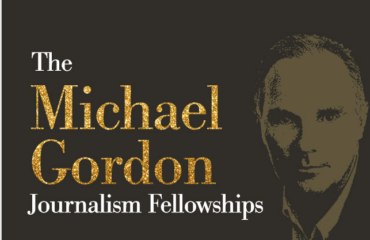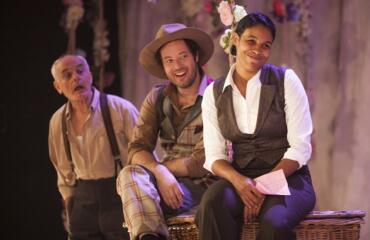Revelling in the buzz of a Sydney bar earlier this year, joining people coming out to play after months of restrictions, should have been a joyous moment for Humphrey Chan. And it was, for a while.
The 24-year-old was catching up for drinks with his friends when a stranger’s voice cut through the buzz.
“These ch——ks all look the same,” declared the voice – casual, flippant.
Chan looked around, stunned, but couldn’t tell who had uttered the racist slur.
“It took me a second to clock … I actually couldn’t believe that I’d heard it.”
Stories of anti-Asian aggression have become widespread around the world since the pandemic began. The New York Times recently published a special investigation which identified more than 110 episodes nationally since March 2020 in which there was clear evidence of race-based hate.
In Australia, a survey conducted by the Asian Australian Alliance found over 370 reports of pandemic-related racism against Asians across Australia over two months during 2020.
The frequency of reports of verbal attacks, physical violence and vandalism is frightening. And, for some, inspiring, persuading them to amplify their voices.
Some, like Chan, are resisting entrenched racism by encouraging Asian Australians to embrace their cultural identities.

Humphrey Chan started the Asian Australian Project to bring together people from his community and encourage them to embrace their heritage. Image credit: Supplied.
Chan is president of the Asian Australian Project (AAP). The not-for-profit initiative runs live and digital events geared towards empowering young Australians of Asian heritage.
“[Our culture] offers so much potential value to us, and can be a source of strength,” he says. “It’s really important that we embrace who we are as individuals.”
Chan sees his role, and that of the platform, as providing support for young Asian Australians to express themselves.
“The biggest part of [my] job is showing that no voices are neglected and that we cover everyone.”
Demand for discussion across different media formats appears to be growing.
Jay Ooi runs Shoes Off, a podcast about what it means to be Asian in Australia. Each episode covers a different topic, from money to school life, history, careers and food.
It’s a platform where Ooi is able to broach stereotypes and break them down, while creating relatable content that appeals to others who have had a similar upbringing to his own.
“It started as a way to unify and elevate Asian Australians,” he says. “I think a lot of us felt that we never fully belonged or weren’t quite fully Australian. It meant that we would … try to hide our ‘Asian-ness’ at times.”
He says people he knew across different Asian Australian communities often felt compelled to play down their connections to Asian culture to feel more accepted by mainstream Australia.
“I just had this realisation … it was really messed up. I was like, ‘why are we doing this?’”
He created the podcast in 2019 to normalise positive discussions about Asian culture.
“The podcast started as a way to talk about the Asian experience, but also to give us education and language to talk about our own experiences.”
Before the pandemic, discussion of race and identity was already gaining momentum around the world. The abuse that began in March last year, and still continues, has become a springboard, encouraging the public to recognise their own inherent biases.
Now, the #StopAsianHate campaign is a vehement sign that conversations about race won’t be silenced anytime soon.
Young professionals Tiana Nguyen and Thuy Nguyen started Unapologetically Asian Podcast in 2019 because they saw a gap in the market for content catering to an Australian-based audience.
“There was a lot of Asian American entertainment that we were watching … but there was not much for Australia,” says Thuy.
“We didn’t really hear stories that were unique to the Asian Australian experience,” says Tiana. “At the beginning it was all about filling that void.”
Positive feedback from their audience was almost immediate.
“At first it was just our friends, but afterwards it was listeners we’d never spoken to before that actually said … ‘this experience is something I’ve been having myself’,” says Tiana.
Many of those experiences involved racism.

Dr Justin Wejak, an academic in the University of Melbourne’s Asia Institute, says education was important to facilitate cross-cultural interaction and promote tolerance in Australia. Image: Mariah Papadopoulos.
The hundreds of attacks reported in the Asian Australian Alliance investigation document incidents such as verbal and physical abuse, exclusion from establishments, denial of access to services and workplace discrimination.
Incidents occurred most often on public streets and in supermarkets.
A Lowy Institute poll published in March found that 37% of Chinese Australians surveyed felt they were treated differently or less favourably due to their ethnicity in 2020.
Dr Justin Wejak, an academic in the University of Melbourne’s Asia Institute, says there was a need to interrogate why racism spiked last year, and to reflect on why it was already rampant before the pandemic.
From the 16th of March 2020, then US President Donald Trump began referring to Covid-19 as “the Chinese virus”, and similar discourses echoed around the world.
But Wejak says anti-Asian sentiment was already rife before the pandemic.
“Racism occurs not only in Australia, America or Europe, but everywhere. One way of dealing with it is to deconstruct it – but how do you do this?”

Jay Ooi runs Shoes Off, a podcast about what it means to be Asian in Australia. He hopes the conversation will allow Australian understanding of national identity to become more diverse. “What I’d love to see more of is just acceptance of difference.” Image: Supplied.
Ooi says encouraging awareness of historical discrimination is one way to address intolerance.
“Australia has a history of racism. We wave the multicultural flag so proudly but we forget often this issue is still actually very present.”
Wejak argues facilitating connections among people from different backgrounds was a good opportunity to counteract ingrained prejudice.
“Education is the way … to help people become more open to their differences, to interact with people from different cultures.”
For Jay Ooi, Thuy Nguyen, Tiana Nguyen and Humphrey Chan, education comes in the form of frank conversation.
Even so, Tiana Nguyen says the agenda in her podcast has been more about sparking conversations than fixing internalised racism. She sees value in honest but informal conversations.
“We don’t want to come across as … an authority on these subjects. This is an experience that we’ve both lived, we can come at it in a way that’s relatable.”
Through similar conversations on his own podcast, Jay Ooi hopes Australians’ understanding of national identity can grow more diverse.
“What I’d love to see more of is just acceptance of difference.
“If I don’t drink beer and kick a football, but I was born in Australia, do I still need to be labelled as Asian Australian?”




